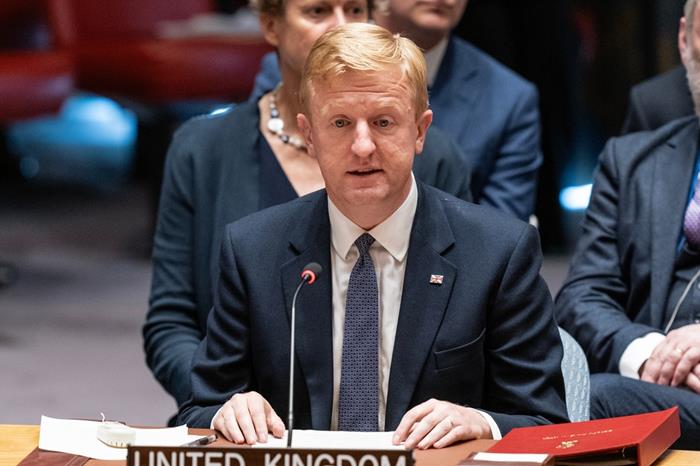Barely two years since the takeover laws were given a makeover, allowing government to intervene on concerns, the deputy prime minister is launching a review that could see a softening of the current rules.
The National Security and Investment Act became law in 2021, giving government the power to call in corporate takeovers for examination over security reasons. The powers were brought in after growing public concerns over investment in key British firms by foreign companies.
However, deputy prime minister Oliver Dowden (pictured) has called for evidence on making the act more “flexible” and “frictionless as possible for those vast majority of deals that don’t pose any concern”.
Dowden wants to know about the “impact” of the current system on “business and investors”, whether the rules are “proportionate” and how well the rules are understood.
Depending on the results, Dowden says he may push ahead with a detailed consultation on specific changes to the regime.
‘As expected’
In July, an annual report on the use of national security laws revealed that of 866 deals considered, 93% were cleared to continue. Of the total, 65 acquisitions were given further review. There was intervention on 15 deals to “block, unwind or impose conditions”. Only five were actually blocked or forced to unwind. Dowden said recent performance is “as expected”.
Most of the deals “called in” involved products that had defence, military or dual use and involved advanced materials. Satellite, space technology and computing hardware were also major areas prompting concern.
China was the “origin” of investment for more than 40% of the deals placed given an initial examination, with the US, Canada, France and Israel figuring in the top five foreign places of origin. Ironically, investment from the UK was involved in more than 30% of deals inspected.
Of the 15 takeovers given a “final order” for intervention, eight involved investment from China, four with a UK buyer and one each for Luxembourg, Jersey, UAE, Netherlands and Russia.
One notable action involved the government blocking the takeover of a Welsh semiconductor maker by Chinese-owned Nexperia.
At the time, the government said the action involved “technology and knowhow that could result from a potential reintroduction of compound semiconductor activities at the Newport site, and the potential for those activities to undermine UK capabilities”.
The takeover of electronics design company Pulsic by a Hong Kong firm was also halted.
Discussion of the national security laws comes at a time when government is keen to reduce the regulatory burden on business. Last month, the government was persuaded to U-turn on new company reporting measures by the London Stock Exchange. The move gutted key elements from an audit reform plan that had been under way since the collapse of Carillion in 2018.
Reviewing the national security laws will find favour in some quarters. That said, any loosening of the rules could clear the way for the takeover of a high profile UK company, which could become a cause celebre. Dowden will likely tread carefully.





